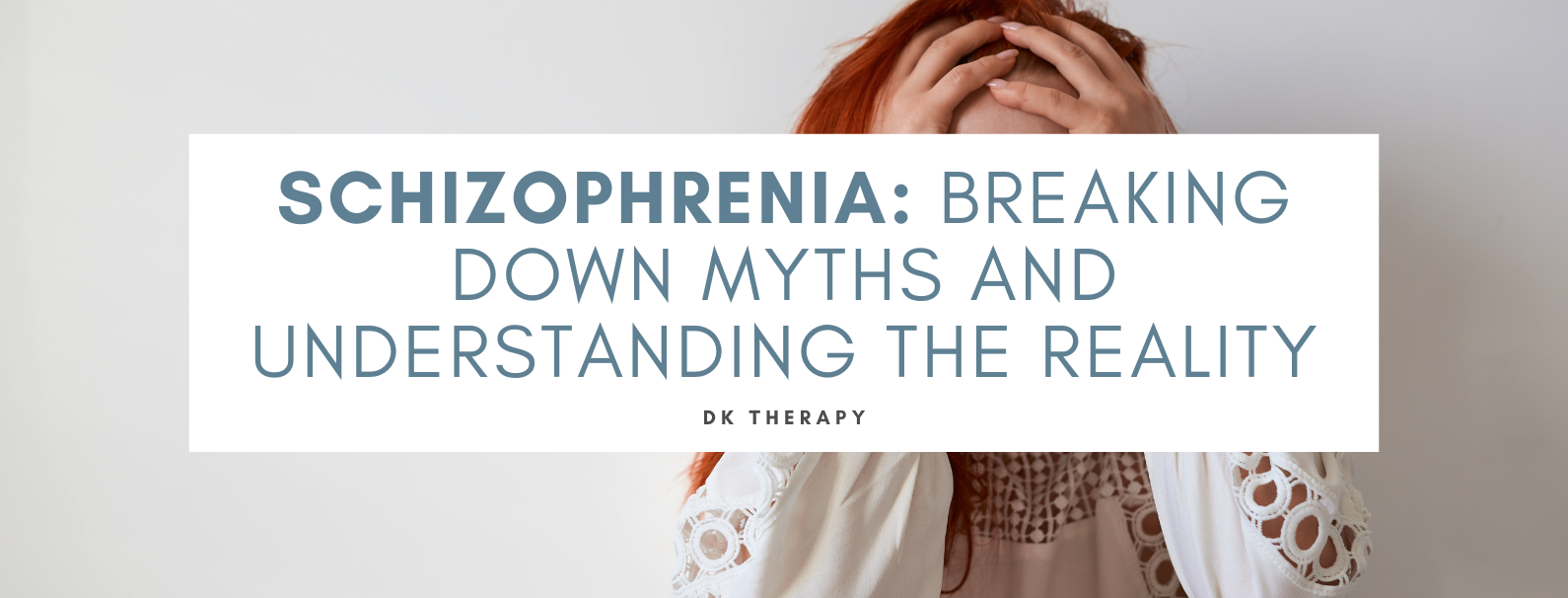
Schizophrenia is one of the most misunderstood mental health conditions. Movies and media tend to dramatize mental illness, and as a result, the reality of living with schizophrenia is clouded by myths and misconceptions. Issues like this not only stigmatize people in need but also push them away from seeking the support they need.
Let’s go over common myths about schizophrenia and provide an accurate picture of what the condition is and what it isn’t.
What Is Schizophrenia?
 Schizophrenia is a chronic mental health disorder that affects how a person thinks, feels, and behaves. It is characterized by hallucinations, delusions, disorganized thinking, and difficulty concentrating or making decisions.
Schizophrenia is a chronic mental health disorder that affects how a person thinks, feels, and behaves. It is characterized by hallucinations, delusions, disorganized thinking, and difficulty concentrating or making decisions.
As with many health conditions, both physical and mental, schizophrenia is usually poorly understood by those who don’t live with it. Unfortunately, misunderstandings lead to the spread of misinformation. For example:
Myth 1: People with schizophrenia are violent.
The idea that schizophrenic individuals are violent or dangerous is one of the most damaging myths about the condition. The truth is that most schizophrenic people are not violent. In fact, studies show that individuals with schizophrenia are more likely to be victims of violence rather than perpetrators.
By addressing this myth, we can challenge the fear-based narratives that surround schizophrenia and encourage greater empathy.
Myth 2: Schizophrenia means losing touch with reality all the time.
Plenty of people assume that the worst symptoms of schizophrenia are nonstop, resulting in a constant state of psychosis. However, with the right treatment and support, schizophrenic individuals can enjoy long periods of stability. Symptoms can vary in intensity as well, so some behaviors will likely be subtle while others are more noticeable.
It’s important to understand that schizophrenic people can and do lead fulfilling lives. Through therapy, medication, and community support, people living with mental health issues are often capable of much more than some give them credit for.
Myth 3: Schizophrenia is caused by bad parenting or personal weakness.
Schizophrenia is a complex condition that does not have a single cause, but is likely a combination of genetic, biological, and environmental factors. Blaming anybody for this sort of diagnosis suggests that the disorder is more of a punishment or flaw than a legitimate health condition.
Myths like these can make it incredibly challenging for individuals and families to seek the help they need, as they may be worried about being judged.
Myth 4: Schizophrenic people cannot work or contribute to society.
Another common misconception is that schizophrenia prevents people from holding jobs or leading the lives they want. However, plenty of people with schizophrenia are capable of working and contributing to their communities.
Supportive workplaces and accommodations can make a big difference in empowering people to thrive at work. When employers and colleagues make an effort to be inclusive, people living with difficult health conditions tend not to feel so stigmatized.
Understanding the Reality
The reality of it is, misconceptions about mental health issues like schizophrenia can greatly harm those affected. As human beings, it’s important to treat each other with compassion and make valid attempts to understand other people’s experiences.
Of course, you don’t have to be an expert right away, but making an effort to educate yourself about schizophrenia is a great place to start. When you’re informed, you can speak out against harmful myths and raise awareness. If a friend or loved one struggles with this condition, advocate for their well-being, express empathy, and be a good ally.
Schizophrenia is a complex condition, but it does not define the entirety of a person’s life. By breaking down myths, we can create a more compassionate and inclusive society.
If you’re struggling and you’d like to work with a therapist, reach out to DK Therapy at your convenience and schedule an appointment.




